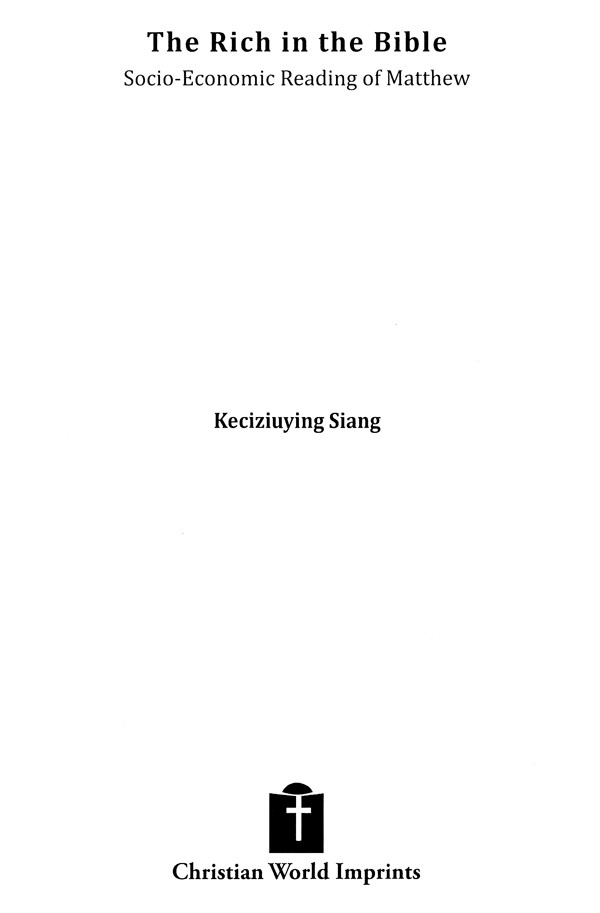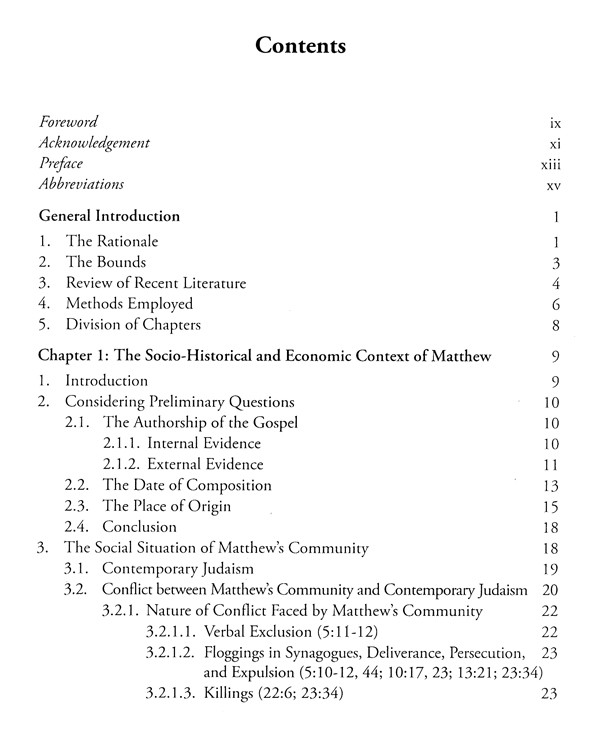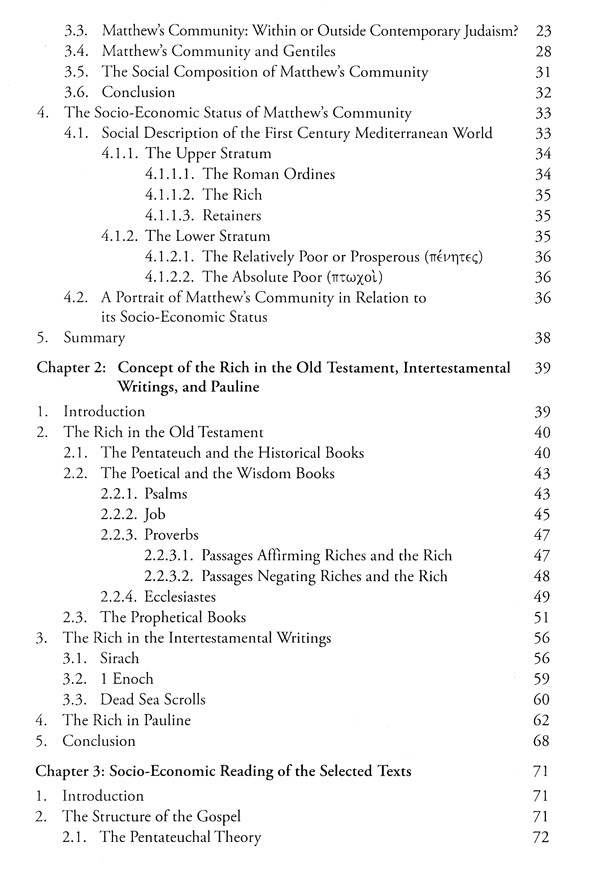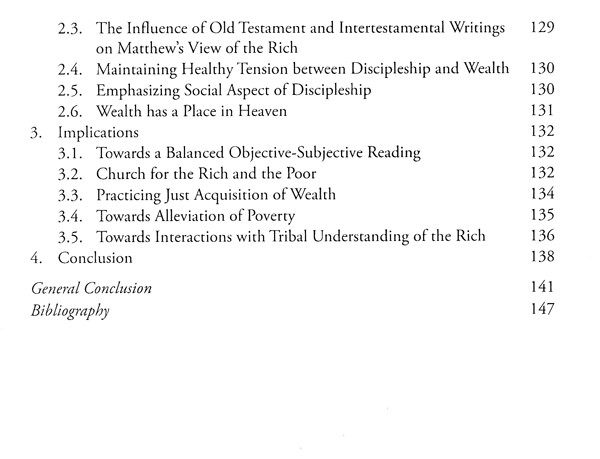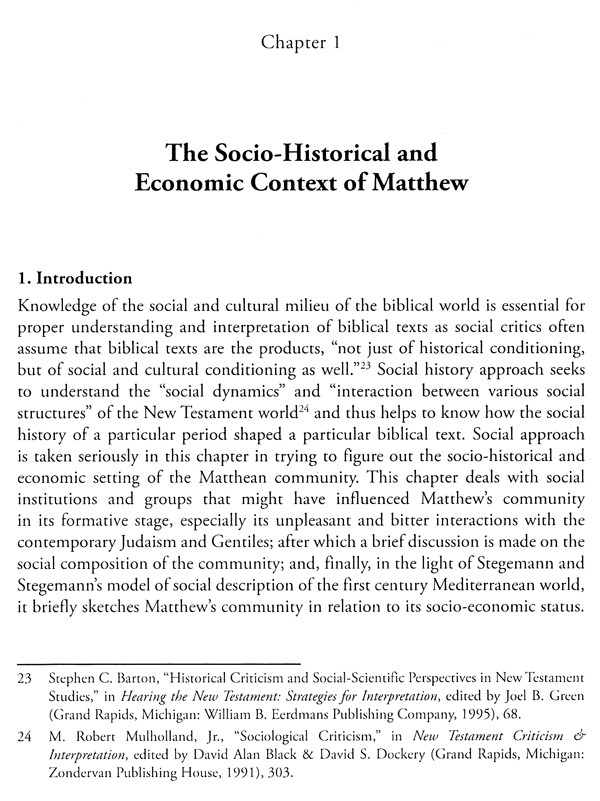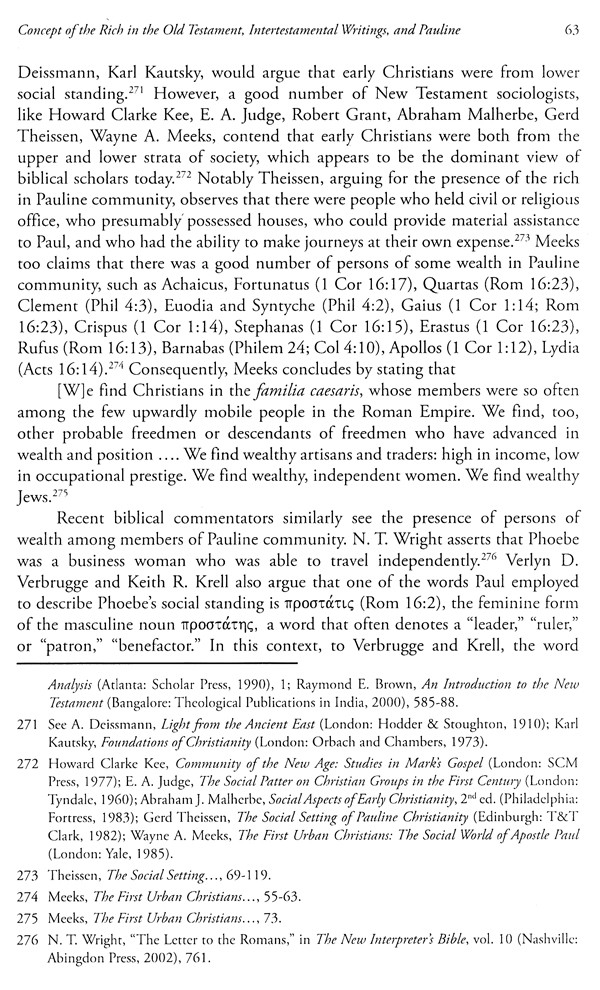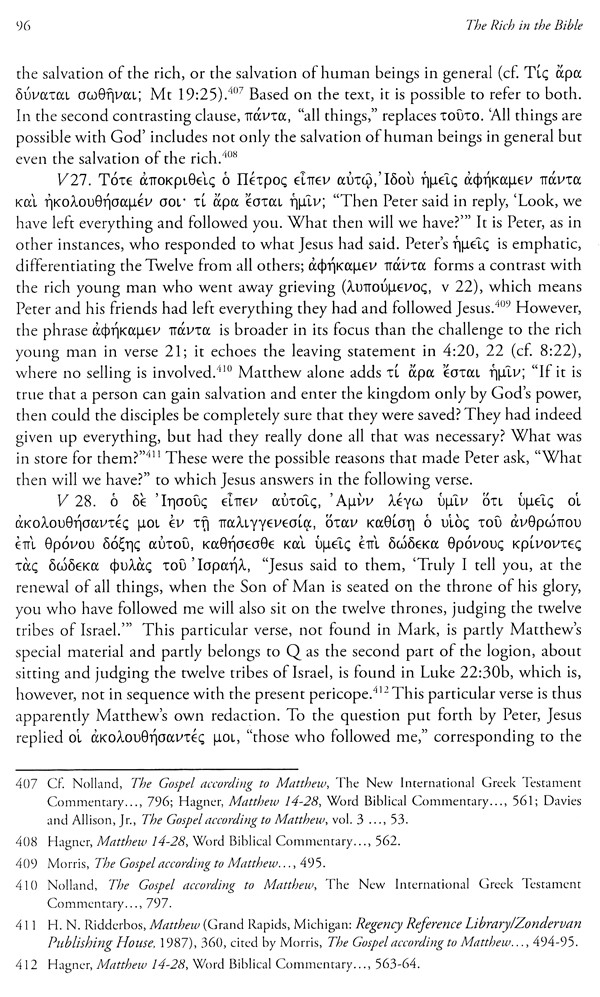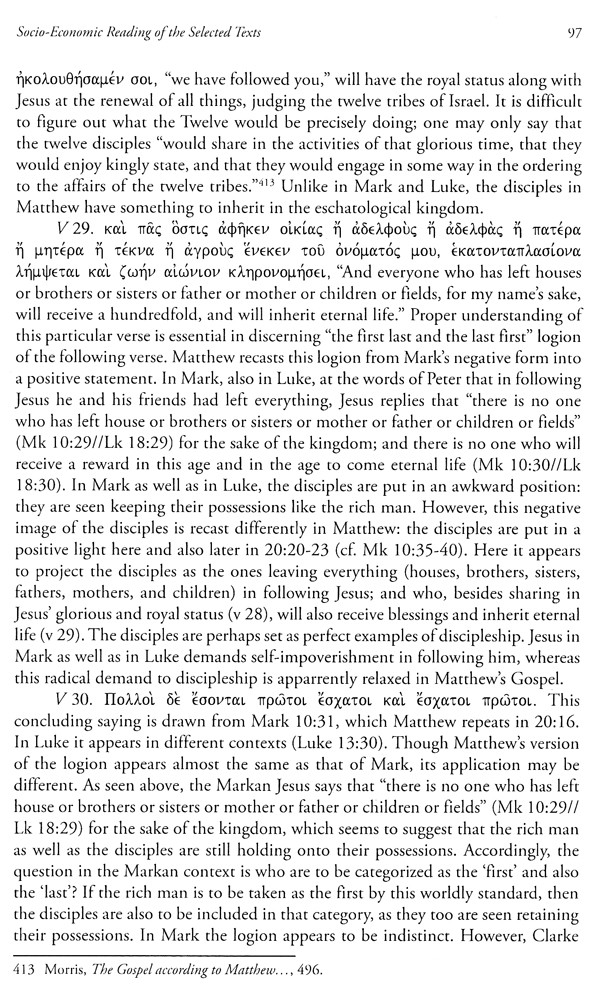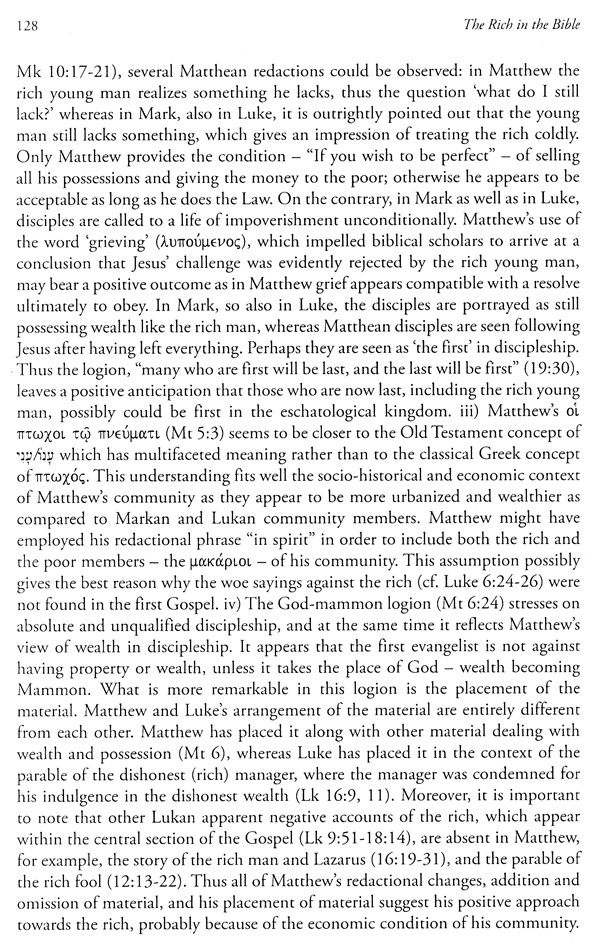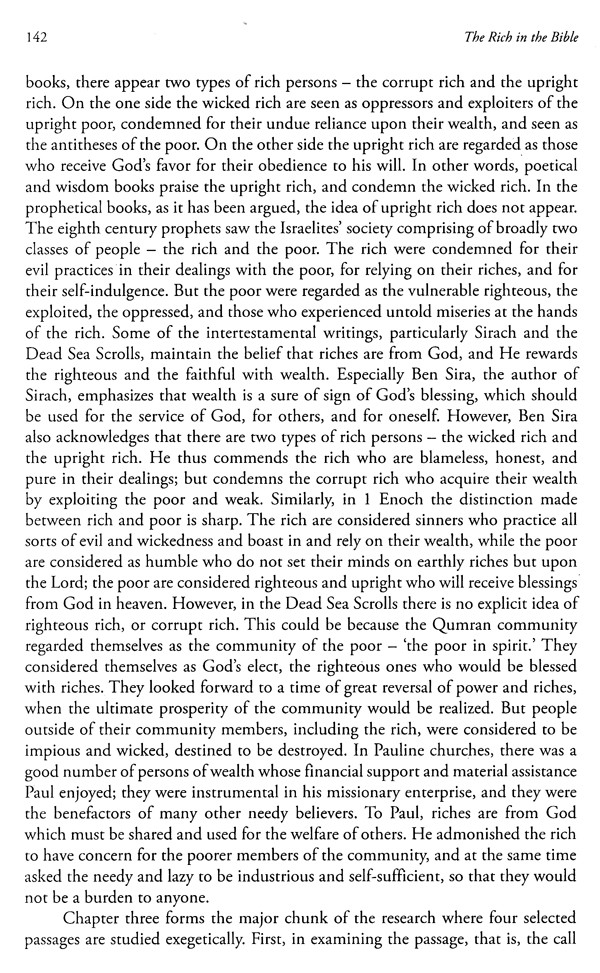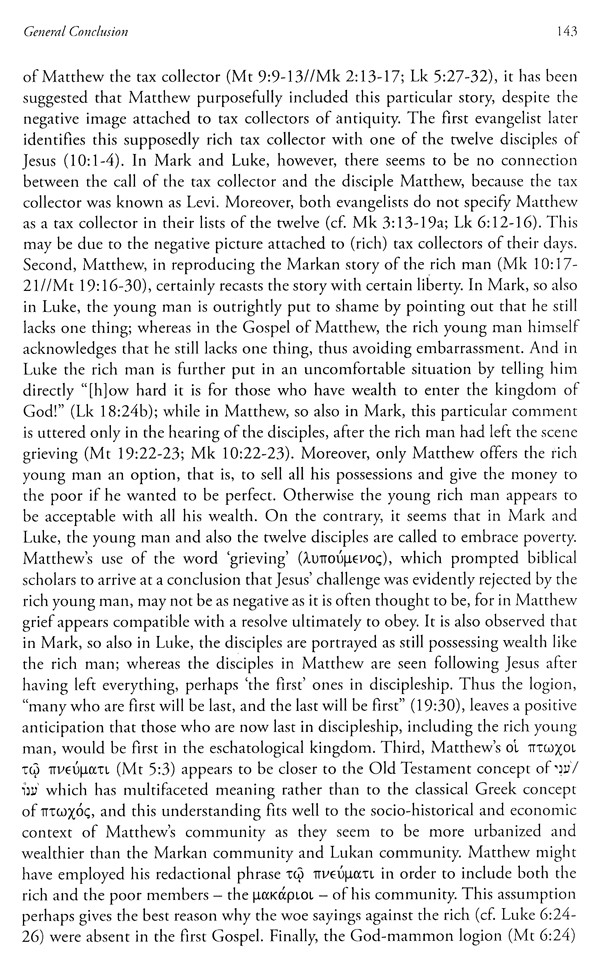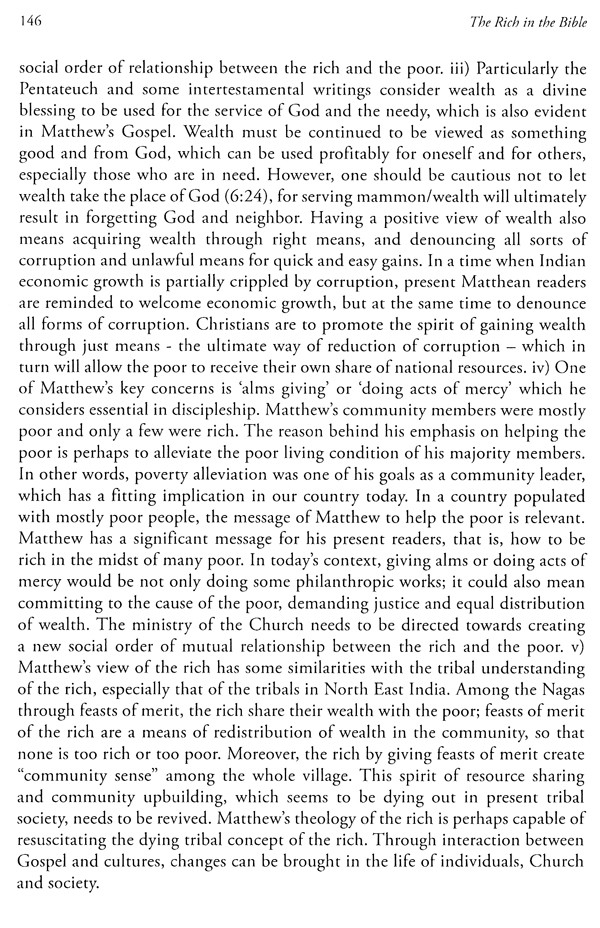
The Rich in the Bible (Socio-Economic Reading of Matthew)
Book Specification
| Item Code: | UBA577 |
| Author: | Keciziuying Siang |
| Publisher: | Christian World Imprints, Delhi |
| Language: | English |
| Edition: | 2022 |
| ISBN: | 9789395457040 |
| Pages: | 179 |
| Cover: | HARDCOVER |
| Other Details | 9.50 X 6.50 inch |
| Weight | 480 gm |
Book Description
The Rich in the Bible: Socio-Economic Reading of Matthew is a ground breaking research into the concept of the rich in the Bible, especially in the New Testament. The book primarily grapples with the issue of the rich in the Gospel according to Matthew, and brings out Jesus' message for the rich - a message that addresses squarely the problem of disparity between the few rich and majority poor in the community. The book has significance in today's global socio- economic context where accumulation of wealth by the rich has greatly affected the life of the less privileged majority in the society at the local, national and global levels. The book answers a very practical question - how to be rich in a world where majority are poor? It is a must-read book for laity, theological students, and teachers alike.
Dr. Keciziuying Siang is from Peren Town, Nagaland. He is Associate Professor of New Testament, and has been in the teaching ministry since 2006. He has authored Paul, Women and Female Imagery (RDDAICS, 2010). At present he is the Academic Dean at the Academy of Integrated Christian Studies, Aizawl. He is married to Ms. L. H. Nimreila, and they are blessed with a daughter, Mzeukiele Siang, and a son, Dihu Siang.
In the current global theological scenario where the whole gamut of theological studies, including that of biblical studies, lean so much toward the concern for the poor and consequently emerge to be anti-rich in its orientation, it is felt necessary to bring out a message relevant for the rich as well as the poor.
From the beginning of my teaching career (2006), I began to think that the first evangelist possibly had a concern for the rich, presumably conditioned by the socio-economic context of his community. Precisely because, in Matthew, almost all the stories bearing positive images of the rich which are found in his sources are retold; whereas, most of the parables and stories that bear negative images of the rich found in the other two Synoptic Gospels, are absent. This initial finding about the rich in Matthew prompted me to do the present study.
Two main methods are employed, namely. Ekkehard W. Stegemann and Wolfgang Stegemann's model of social description and, adaptation of M. Gnanavaram's use of redaction criticism in his book. Treasure in Heaven and Treasure on Earth: Attitude towards Poverty and Wealth in the New Testament Communities and the Early Church (2008); and it arrives at a conclusion that i) Matthew's redactional changes suggest his accommodative view of the rich. ii) Matthew's redactional activity bears his socio-economic interests, iii) the Old Testament and Judaism could have influenced Matthew's view of the rich, iv) Matthew tries to maintain healthy tension between discipleship and wealth, v) Matthew teaches his community that appropriate use of wealth for the benefit of the needy has a reward.
The Rich in the Bible: Socio-Economic Reading of Matthew is a ground breaking research into the concept of the rich in the Bible, especially in the New Testament. The book primarily grapples with the issue of the rich in the Gospel according to Matthew, and brings out Jesus' message for the rich -a message that addresses squarely the problem of disparity between the few rich and majority poor in the community. The book has significance in today's global socio-economic context where accumulation of wealth by the rich has greatly affected the life of the less privileged majority in the society at the local, national and global levels. The book answers a very practical question - how to be rich in a world where majority are poor? It is a must-read book for laity, theological students, and teachers alike.
1. The Rationale
Matthew appears to maintain a positive attitude towards the rich among the first three evangelists. He seems to color his gospel with a positive image of riches which appears to extend this same image to the rich. A cursory reading of Matthew's parables gives the impression that most of his parables, especially that concern the reign of God, depict God as a rich king or a rich person. For example, it appears to portray God as a rich king in Mt 18:23-34 and 22:1-14 (// Lk 14:1- 24), and also a rich landowner in 20:1-16 and 21:33-41 (// Mk 12:1-12; Lk 20:9-19). Moreover, Mt 25:14-30 (// Lk 19:11-27) conveys probably the idea that the subjects of the reign of God are to be judged based on their use of talents/ wealth given to them. What is more striking is that stories about the rich, bearing seemingly positive images found in his sources, are reproduced. For instance, the story of a centurion, probably a rich and a socially outstanding person, taken from Q (Mr 8:5-13// Lk 7:1-10), and the story of a tax collector from Mark (2:13-17// Mr 9:9-13; Lk 5:27-32) are retained. Most of the parables and stories that bear negative images of the rich found in the other two Synoptic Gospels are absent in Matthew. For example, the parable of the dishonest manager (Lk 16:1-13), the parable of the rich fool (Lk 12:13-22), the parable of the rich man and Lazarus (Lk 16:19-31), the story of the widow's offering (Mark 12:41-44// Luke 21:1-4).Besides, Matthew's beatitudes seem to signal his accommodative approach to the rich for he has nine "blesseds" (Mt 5:3-12) with no "woe" against the rich, whereas Luke has four "blesseds" and four corresponding "woes" against the rich (Lk 6:20-26). Moreover, Matthew's first beatitude is slightly different from that of Luke, which appears to be inclusive in its outlook. Furthermore, the fifth beatitude, "Blessed are the merciful, for they will receive mercy" (Mt 5: 7). a material with no parallel, seems to be directed to the rich rather than the poor, since the poor usually expect the rich to be merciful towards them.
**Contents and Sample Pages**
